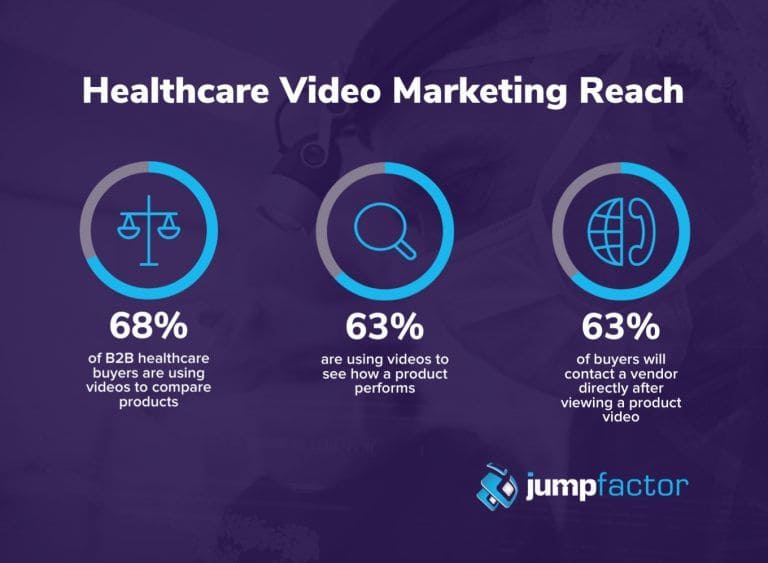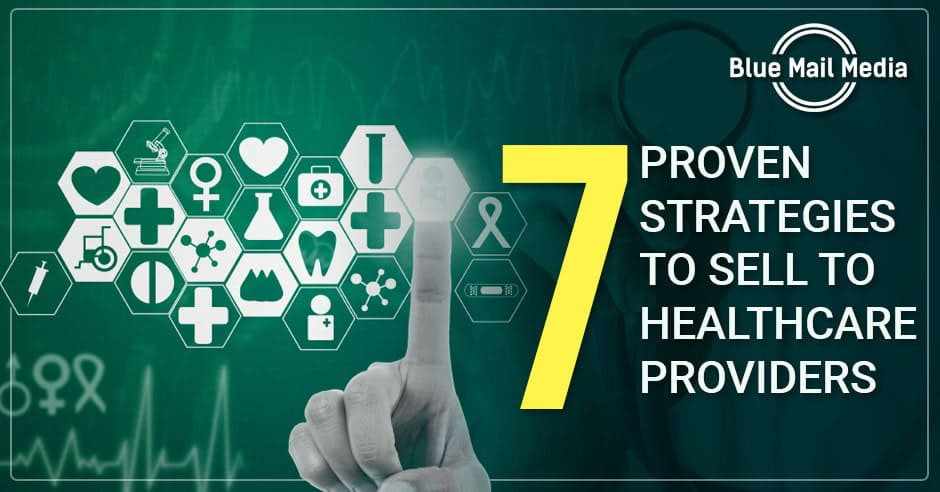Healthcare is arguably the largest B2B segment, but the task of selling to medical professionals can be really challenging. The medical professionals are very careful about their purchases and always put safety and quality above everything else. Therefore, distinct marketing strategies are required.
Below are some secrets to selling into core Healthcare Providers and creating ongoing, effective lead generation systems.
1. Understand the Organizational Structure Of the Client you are Dealing With
Take time to research what role your prospect has – direct buyer or influencer? In healthcare, every prospect is going to have a vastly different influence on the purchasing process.
For example, if you’re working with a self-employed physician, running his/her practice, you will have to deal with a single decision-maker. On the other hand, when you’re selling to a hospitals or surgery centers, it gets a lot more complex. You might need to work with a purchasing department or a buying group. In such cases, it is important to map out your client’s purchasing hierarchy and identify the key professionals involved in the buying process.
Sorting through which professionals will have the greatest sway over the hospital’s purchasing decisions will ensure you focus on developing business with the right people.
2. Gain Confidence in the Key Opinion Leaders in the Organization
Finding professionals with the greatest influence over the hospital’s purchasing decisions, especially in the case of big hospitals, can be a really daunting task given there might be hundreds of people. Also, finding their contact information can take weeks as there are several levels involved in hospital management.
 Source: Line
Source: Line
Therefore, another helpful approach is to start with the key opinion leaders (KOL) within the network.
Who are Key Opinion Leaders?
Key Opinion Leaders (KOLs) are influencers with proven expertise in the medical community. These professionals can help inform your sales strategy and messaging and help put you in contact with the right decision-makers. The Key Opinion Leaders can become your sales champion. Therefore, forming a good relationship with the KOLs is a proven method for ensuring sales success.
The Benefits?
You gain rapport within your target health system as you will be able to clearly demonstrate the benefits of your products or services and prove their positive effect on patient outcomes.
3. Research their Pain Points Thoroughly
Identifying the pain points of a medical facility shows your prospect that you understand what challenges they have to face daily, and you want to help them with a solution designed to address those pain points.
Your solutions may not completely solve their problems, but they should tie directly to alleviate some of their challenges.
For example, if a hospital’s complication rates for a total knee replacement are very high, they may face huge penalties from CMS. If you can offer a prosthesis that can improve implant longevity, it would help hospitals decrease the risk of complications, long-term care costs and avoid hospital revenue loss and CMS penalties.
4. Explain How your Product Offers Value and is Different from the Rest
Selling to medical professionals is different due to the following reasons:
- Most of the time they are not looking for product or services; they are looking for solutions which can address their pain points.
- Due to the critical nature of their operations, healthcare providers are often reluctant to switch vendors.
- The professionals in this industry don’t like taking risks; they need proven solutions with little or no risk to patient care and their bottom line.
However, with these important things in mind, you can overcome their reluctance:
- Articulate to your prospect that your product can solve their problem, and they would get value out of it. For instance, if you’re selling software that makes medical imaging clearer and easier to analyze, it would drastically improve patient’s experience by leading to a quicker and more accurate diagnosis. It will also improve the hospital’s productivity and reputation.
- Position your company as a trusted business advisor instead of a seller. Understand the risks that medical organizations have to deal with and develop strategies that can help mitigate those risks. It always helps to share industry research and provide your prospects with case studies.
- If they are already buying a similar product or service from someone else, then you’ll need to explain how yours is different and better. It also helps to get good reviews from trusted medical experts. You should also pitch the higher ROI or accuracy of your product or service compared to the one they are using.
5. Experiment with Different Media
To be successful, you’ll need to test new ideas, track results, and continuously improve based on the previous results.
Test various media to generate your leads, including videos, emails, trade publications, paid search, SEO, e-newsletters, affiliate marketing, social media, trade shows, telemarketing, review sites, and every online and offline channel you can think of.
- 2 out of 3 doctors are using social media for professional reasons.
- 81% of hospital administrators directly get in touch with vendors after searching for products or services on Google.
- 38% of healthcare providers read reviews before making a purchase.
- 68% of the buyers find videos useful for comparing products, and 63% of buyers get in touch with a seller after viewing the video.
 Source: Jump Factor
Source: Jump Factor
The key takeaways from these statistics are that:
- The medical landscape is changing, and medical professionals are using different media for professional purposes.
- As you get results using a certain media, it’s important to evaluate each medium’s cost-benefit based on its ROI.
- Those who don’t harness the power of different media will lose out to more digitally savvy companies.
6. Provide Relevant Content that Adds Value
Although doctors are smart and constantly learning, it is nearly impossible for them to keep current on every topic pertaining to healthcare and issues that come up every day.
Providing useful, relevant information will help you get their attention and enable you to earn their trust.
72% of healthcare professionals start with a search when buying a product or service.
This figure highlights the importance of content marketing in healthcare.
By offering valuable content to your prospects, you will be able to bring a consistent flow of new leads into your pipeline.
7. Understand how Regulatory Guidelines Affect Medical Providers Buying Decisions
Compliance with regulatory guidelines, standards, and safeguards is of utmost importance to the healthcare industry because fines and penalties for non-compliance can be quite steep. Therefore, you have to make sure that you’re completely compliant if you sell products that deal with electronic protected health information (ePHI).
For instance, if you sell breathing machines for patients suffering from sleep apnea, some machines may record and store patient health information during sleep so that it can be analyzed by physicians to track patients’ progress using the machine. This data must be safeguarded under HIPAA (Health Insurance Portability and Accountability Act) regulations. A data breach can have severe financial consequences for the healthcare provider and damage their reputation as well.
Conclusion
Medical professionals are often quite hard to reach and averse to risks as their decisions can impact patients’ lives. By incorporating the above strategies, you will be able to position yourself as a trusted business partner and experience greater success.

